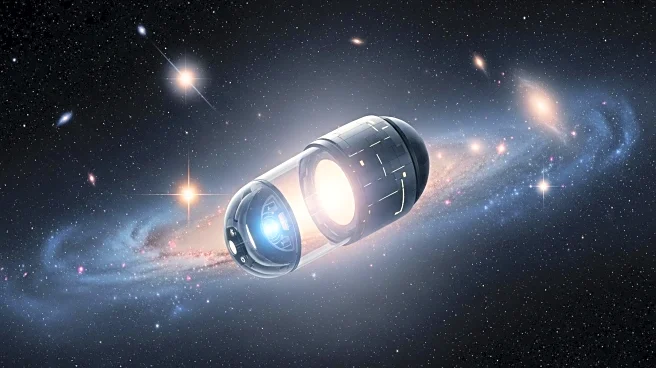What's Happening?
A recent study published in Cell Stem Cell indicates that stem cells age ten times faster in space than on Earth. Conducted by researchers at the Sanford Stem Cell Institute, the study involved sending stem cells from bone marrow to the International Space Station aboard SpaceX missions. The cells were housed in nanobioreactors and monitored in CubeLabs. The findings suggest that microgravity accelerates aging processes, posing potential health risks for astronauts and implications for long-duration space missions.
Why It's Important?
The accelerated aging of stem cells in space raises concerns about the long-term health effects of space travel, particularly as interest in lunar and deep-space missions grows. Understanding these risks is crucial for developing strategies to protect astronauts' health and ensure the success of future missions. The study also offers insights into aging processes on Earth, potentially informing medical research on age-related diseases and regenerative medicine.
What's Next?
Further research is needed to explore countermeasures that could mitigate the effects of microgravity on stem cells and overall health. Collaboration between space agencies and biomedical researchers will be essential to address these challenges. The findings may also influence policies and preparations for upcoming space missions, including those involving private companies and space tourism.









